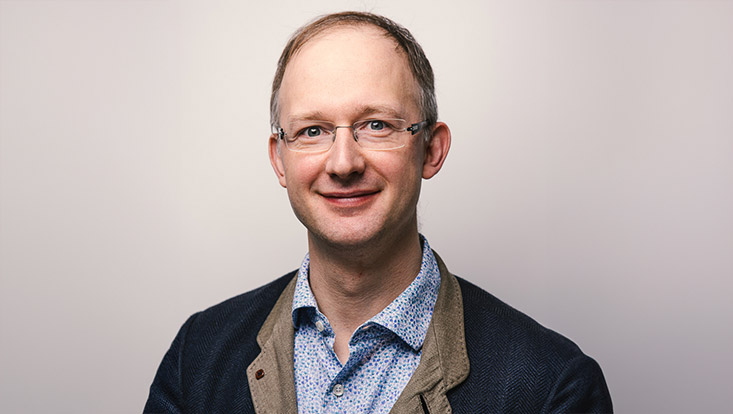Europe-wide research networkWhat Makes a Just Housing System?Doing the Research series
15 August 2024, by Viola Griehl

Photo: Just Housing in Europe/genAI
Less and less people are able to find affordable housing. Policymakers are pushing to build more apartments while the construction industry is complaining about overregulation and exploding costs. Researchers from an interdisciplinary network have set out to find solutions for a just housing system. Dr. Dr. Marco Meyer from the University of Hamburg’s Department of Philosophy initiated the project.
What does the current system tell us about inequality and social justice?
As a general rule, those who can pay more, have nicer homes. At the same time, the German housing market is among the most regulated and politically controlled markets in the world. Rent control and protection laws, building social housing, and homeowner assistance programs are to improve the quality and affordability of housing for certain, less affluent groups.
However, having a large number of rules and regulations can backfire by slowing down residential construction and resulting in housing shortage and homelessness. It’s like the game Musical Chairs with the chairs representing homes. Success requires swift action and good luck. The number of available chairs determines how many participants get the shaft.
Moreover, there are empty chairs who are out of reach from the start, meaning empty apartments that are not being used.
That’s how it is. Cities are trying to tackle vacancies by imposing bans, but these are very difficult to enforce. Unused land and low-density residential areas are even bigger challenges. Taxes might help increase the pressure to further development. Overall, we need to better understand the interconnected dynamics to reshape the housing market. This calls for an interdisciplinary approach.
Is this where your project comes in?
Yes, our project aims to connect researchers from a range of disciplines whose work focuses on housing justice from various perspectives. It is astonishing that there is hardly any exchange on this and other topics across the disciplines. I hope this will generate innovative and feasible ideas for housing justice.
How can interdisciplinary questions help reduce homelessness?
Homelessness is a complex problem that requires expertise from more than one discipline. A philosophical approach includes essential questions: What do we actually mean by ‘homelessness’? Are only people sleeping under a bridge homeless? Or does homelessness begin when I do not have a place of safety? These questions are interwoven with questioning our ambition to combat homelessness.
Does it suffice to provide every homeless person with a place to sleep in a shelter? Shouldn’t we aim higher? There is much more to it. It takes interdisciplinary action to overcome homelessness. Here are a few examples: Urban planning can help by providing affordable housing and planning integrated neighborhoods. Economics experts analyze the economic roots of homelessness to develop strategies for income security. Sociologists examine social causes.
What experiences and models from other countries could serve as an example for Germany?
As conducting large-scale housing experiments is not an option, observations from other countries may tell us what could work here too. Solutions can rarely be transferred directly but provide ideas and suggestions.
Vienna in Austria is a good example of successful social housing development. Denmark levies a land value tax that taxes the base land value. In contrast to Germany’s property tax, the land value tax taxes the base value of the land according to the total value of the property minus the value of improvements but excluding buildings or their modernization. This is to increase land use efficiency and fend off land speculation. Scotland and various Scandinavian countries implemented a housing-first approach—first of all providing homeless persons with their own apartment. This showed that having a roof helps solve problems, such as unemployment or drug addiction more quickly.

You are doing economics and philosophy research with a particular focus on ethics. What ethical considerations are essential for housing projects?
The ethical challenge consists of weighing up the various considerations relevant to the planning and implementation of housing projects. Apartments shall be affordable. But apartments shall also meet high safety standards and ecological goals, among other things. We have a long wish list. From an ethical perspective, it will be exciting to see what happens if not all goals are fully achieved.
How can philosophical approaches improve our understanding of the social and ethical dimension of housing?
If affordable housing is scarce, the various stakeholders in the housing market quickly retreat to their respective interests. A philosophical approach allows us to look behind the rhetoric of the distribution battle and to ask how benefits and burdens in the housing market can be distributed fairly. The philosopher John Rawls coined the metaphor “veil of ignorance” for this approach. Accordingly, the only “just” solution is a solution we agree while unaware of our role in the housing market as tenants, landladies or landlords, rental co-ops, real estate administrators, existing tenants, or apartment seekers.
Are you planning to cooperate with practitioners or policymakers?
Our primary aim is to establish a researchers network. In this practice-oriented field, research results often provide policymakers with immediate points of reference. For instance, participating researchers examined how Airbnb impacts rents in densely populated areas. Based these research results, municipalities are addressing restrictions for short-term leases. Some of the researchers are also directly involved in politics, for instance, as parliamentary secretaries or activists.
About the project
Just Housing in Europe is a collaborative project that brings together 20 European researchers from philosophy, economics, human geography, urban planning, law, social and political science. The project, funded by the German Research Foundation (DFG) with roughly €78,000, aims to provide a diverse understanding of the complex interplay of housing policy, market dynamics, and social justice as well as suggestions for a just housing system.
Doing the Research
There are approximately 6,200 academics conducting research at 8 faculties at the University of Hamburg. Many students also often apply their newly acquired knowledge to research practice while still completing their studies. The Doing the Research series outlines the broad and diverse range of the research landscape, and provides a more detailed introduction of individual projects. Feel free to send any questions and suggestions to the Newsroom editorial office.


